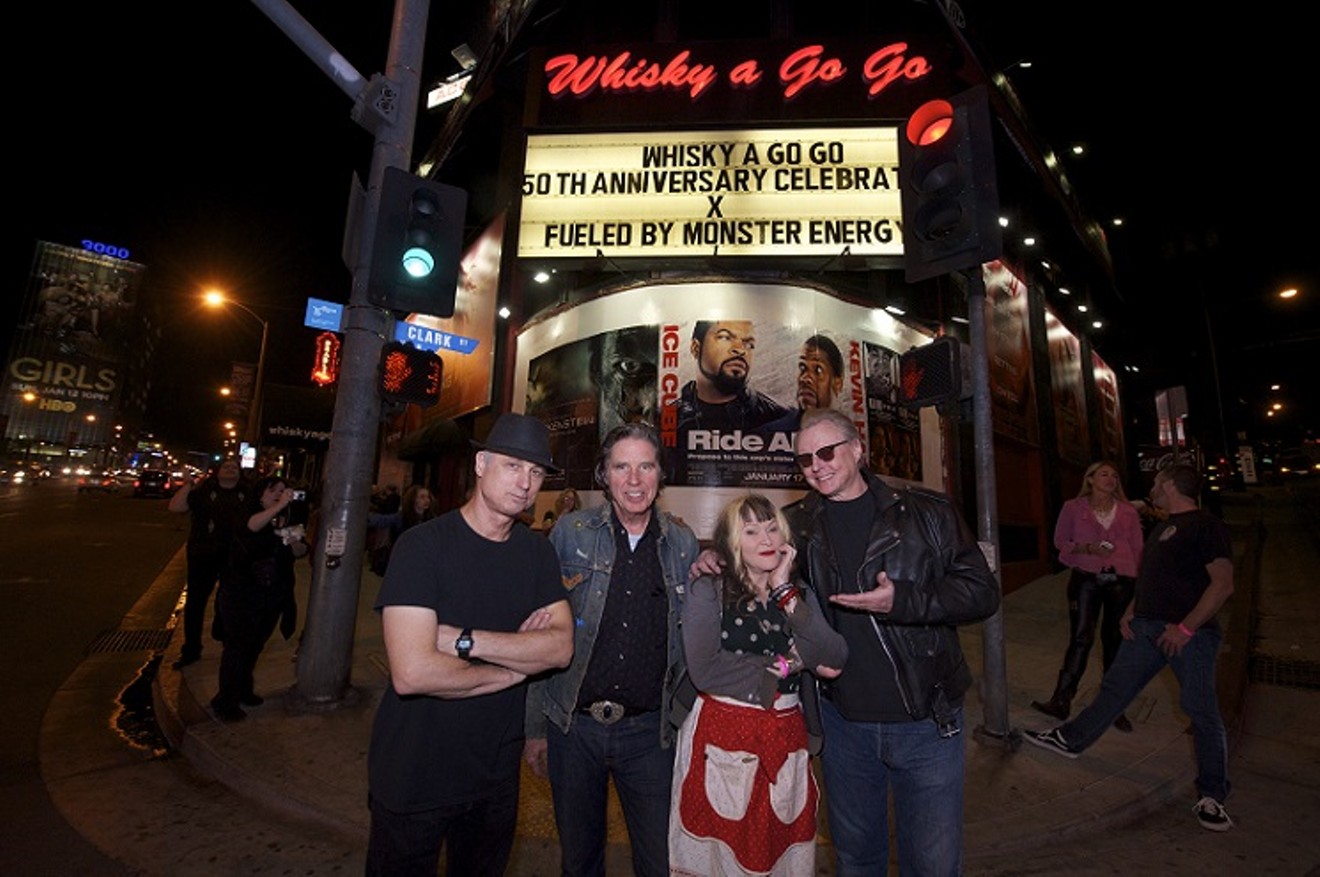Doing so meant they created something as stylized and enduring as Patti Smith but even more syncretic: they revisited the tin-can AM dreaminess of 1950s radio; borrowed a bit of dusty twang and chrome-lined rockabilly; vented anger like Vietnam-era counterculture; embraced the moody, eruptive Doors; and shook with buzzsaw but hummable punk. In essence, they created a series of albums that feel like Heart of Darkness set in a lurid, crumbling Los Angeles strewn with fragments of Charles Bukowski, Dashiell Hammett, Arthur Rimbaud, folk broadsides, teenage kicks and B-movies, as well as salt of the earth and sleazy tabloids.
Despite solo careers and family ventures, for 40 years they have maintained that appeal, even into the August light of their careers. Before the hustle of their impending anniversary tour, iconic bassist/singer John Doe took time to wrangle with the queries of our David Ensminger.
Houston Press: One of the fascinating sides of X has always been your relationship to visual culture — photography, gig flyers, appearances in documentaries, etc. Your website actively archives such work. Why is that so important?
John Doe: Punk rock was always about more than just music. We believe in the power of all mediums to affect cultural change. In the earliest days, everyone expressed themselves in a variety of ways: art, clothing, attitude, philosophy, etc.
For many first-generation San Francisco punks, the city is now like an alien country; since Los Angeles undoubtedly was the lead character on your first album, has the city retained any sense of that past for you – maybe here or there?
There are always remnants of that past, but many of the physical landmarks are gone. The soul of each city remains, San Francisco with a dark kind of spooky energy, [while] Los Angeles will always seems open, wild, and boundless. In Los Angeles, the light and horizon are mostly intact. The desert and ocean are still only moments away. All cities in the U.S. are undergoing a seismic shift.
X was an indelible part of the film The Decline of Western Civilization, but do you think any fiction film has been able to convey the spirit or ambience of the punk era?
For me, most music movies are too earnest. Nashville by Robert Altman is one of the exceptions.
After the first album, X’s material quickly goes national – the songs sometimes name-drop cities, and Exene has mentioned the connection the band had to Rust Belt cities (beer, freedom, and manufacturing jobs. How would you explain Trump’s success in places that loved (and still love) X?
We felt that connection, but it wasn't always returned. We've always been more popular in bigger, more free-thinking cities. Manufacturing left the U.S. in the '70s, and people are just now realizing what we gave away. At this point, I only hope that people think about what they eat and what they wear. I have no comment on how a bully tricked so many basically good hardworking people.
Your book Under the Big Black Sun…does an incredible job of showing a wide umbrella of punk in L.A., from the Go-Go’s to the Flesheaters. If you wrote a part two, what would you focus on?
To paraphrase the dedication of the book, there are many other stories to tell. Part two would cover the developments from 1983-87 and how money, touring, and the second wave of alt-country music etc. affected [the] L.A. music scene.

Early X: "We've always been more popular in bigger, more free-thinking cities," says John Doe.
Photo by Frank Gargani/Courtesy of X
Many song lyrics start off as poems and are edited to fit into the meter of the song. We, like many other writers, simply write. Later on you figure out what it can be used for. Many of the lyrics to the first X songs started as poems, and most of them could be published as poems.
Richard Meltzer once called “Sugarlight” the “GREATEST HEROIN SONG since 'Heroin,' but 'Nausea' was the “GREATEST EVOCATION of that perceptual dimension"? How would you describe Meltzer and his writing?
“Sugarlight” actually refers to speed and “Nausea” about hangovers. But yes, we knew Richard, loved his writing in Slash magazine, and see him as continuing a great tradition of beatniks and bohemians. His writing reminds me of expressionist painting: all the pieces are there, just in a different, chaotic order. It makes sense on a visceral level.
People often downplay the meaning of anniversaries, but what has not surprised you in the intervening years — that punk has mutated a thousand times, or that governments still fail their promises?
It's near impossible to predict the future, but I think we both could've guessed that. All music is supposed to evolve. Government is corrupt, and most people in it only serve themselves while pretending to serve the people.
X bring their 40th-anniversary tour to The Heights Theater (339 W. 19th) on Monday, May 22 with special guests Folk Uke and John Egan. Tickets are $22 through $120.






